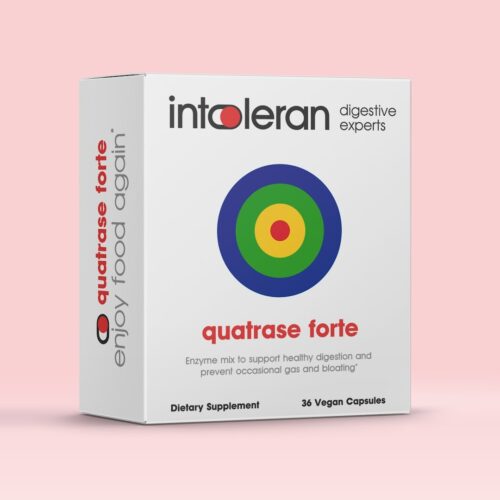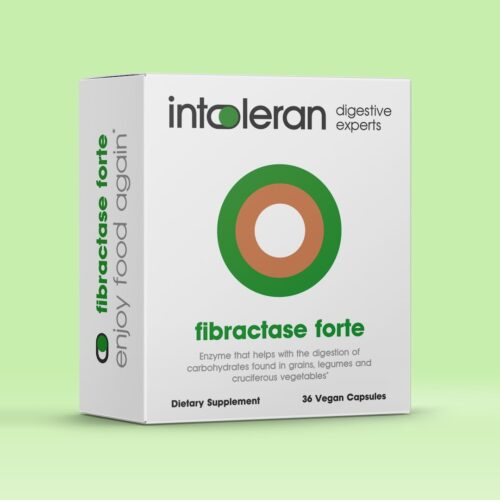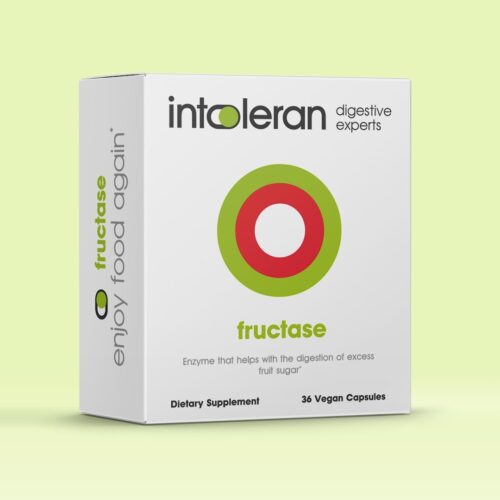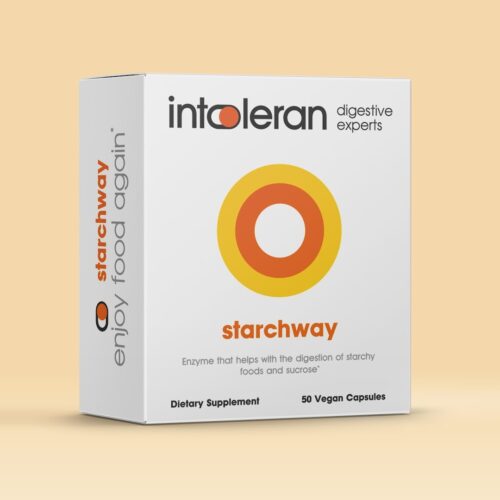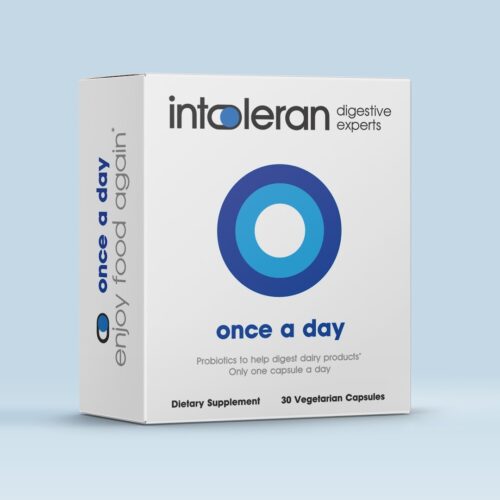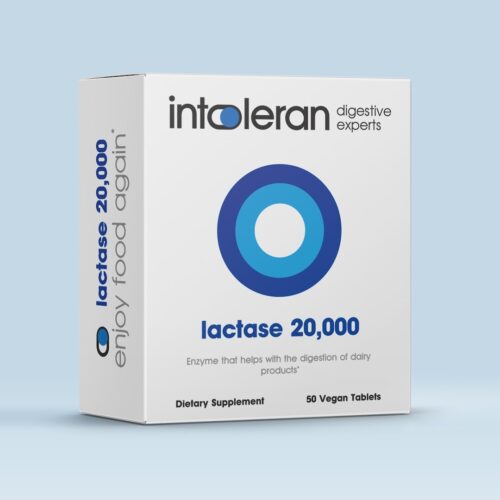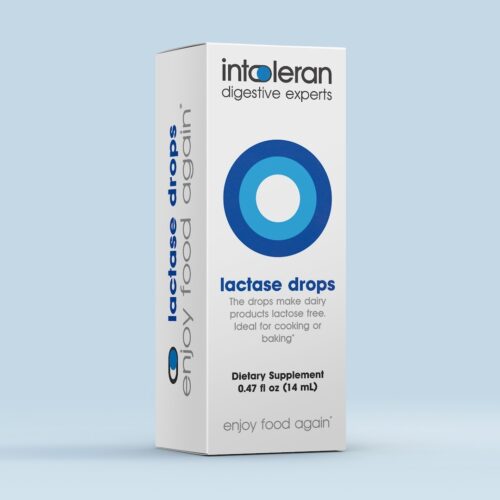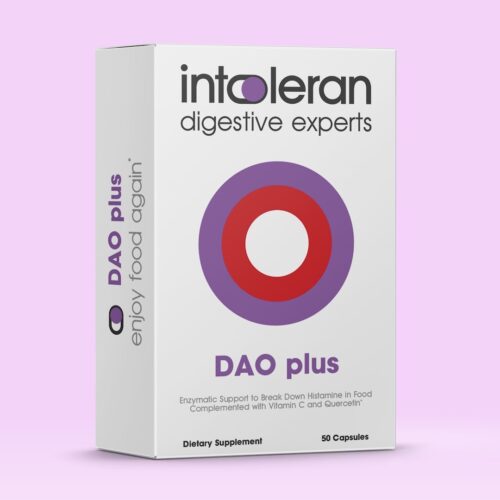Gluten is a protein, found naturally in certain grains such as wheat, spelt, rye, and barley. Gluten, for example, makes bread fluffy and is normally just digested in the gut. You can read more about gluten intolerance below.
what is a gluten allergy?
If you suffer from gluten intolerance (also known as celiac disease), the small intestine is unable to properly digest the gluten. People with gluten intolerance react violently to the intake of gluten. The body makes antibodies that attack the body’s own cells. This causes an inflammatory reaction in the lining of the small intestine, which then becomes damaged. A damaged small intestine is less able to absorb nutrients, which can lead to deficiencies.
Gluten sensitivity is a recognized disorder about which there is still much uncertainty. There is no officially proven gluten intolerance, but eating gluten does cause symptoms. Avoiding gluten can reduce the symptoms.
There are also other forms of gluten intolerance or celiac disease. For example, refractory coeliac condition. Refractory coeliac condition is a rare form of gluten intolerance that is often diagnosed later in life (after the age of 50). Despite the gluten-free diet, the symptoms of this type of gluten intolerance do not get any better. Often they even get worse. Also, the intestinal wall does not recover after a gluten-free diet. Some people can even develop a tumor in the small intestine. People with refractory celiac disease often have a lot of contact with an MDL doctor.
Some people with gluten intolerance also suffer from dermatitis herpetiformis, a chronic skin condition that is particularly prone to itching. The skin condition can be caused by hypersensitivity to gluten, but not everyone suffers from it.
There can be some confusion about the difference between gluten and fructans. While many people think they react to gluten because they suffer after eating bread or other cereal products, they actually react to fructans. This is because cereal products made from wheat often contain high levels of fructans. A gluten-free diet can therefore help, as it reduces your intake of fructans.
If a coeliac test comes back negative, it’s highly likely that you have fructan intolerance rather than gluten intolerance. In the case of fructan intolerance, there is no immune system reaction and the intestinal wall is not damaged. Fructans are found in many products other than cereals, such as fruit and vegetables, which do not contain gluten.
which foods contain gluten?
Gluten is found in products made from certain grains such as wheat, spelt, barley, and rye. Below are the most common gluten-containing products, but the complete list is much longer.
- Bread, pastries, rusks, and crackers
- Breakfast cereals
- Pasta, noodles, vermicelli, couscous
- Pizza
- Flours and baking mixes
- Pastry and cakes
- Beer
Gluten can also occur in products in which gluten-containing binders have been used or in which a gluten-containing breadcrumb or spice mixture may have been used. These include:
- Sauce
- Soup
- Broth
- Gravy
- Processed meat, sausages, and minced meat
- Candy and chips
There are also a number of grains that are naturally gluten-free, but often contain gluten due to cross-contamination. These include:
- Oats
- Buckwheat
- Quinoa
how do you recognize gluten intolerance?
Complaints of gluten intolerance are due to the fact that gluten cannot be digested properly in the small intestine. Inflammation of the intestinal lining can also cause symptoms. The complaints can be very different and can occur at any age. The most common complaints and symptoms of gluten intolerance are:
- Abdominal pain.
- A bloated abdomen.
- Persistent diarrhea.
- Constipation.
- Unpleasant smelling stools.
- Decreased appetite.
- Tiredness.
- Anemia.
- A general feeling of sickness
Certain symptoms associated with gluten intolerance are very similar to those that can occur with other intolerances, such as lactose intolerance or fructose intolerance. However, the complaints associated with gluten intolerance (celiac disease) are often more severe.
In order to diagnose gluten intolerance or celiac disease, a blood test must be performed. If antibodies to the body’s own cells are found in the blood, an intestinal biopsy can be taken (in adults). This biopsy can be used to diagnose gluten intolerance or confirm the coeliac condition. In children, the diagnosis is made on the basis of the blood test.
what can you do about gluten intolerance?
Unfortunately, gluten intolerance cannot be cured and will last throughout life. Fortunately, there are a number of things that can be done to reduce, but preferably prevent symptoms and thus limit further damage to the intestinal lining.
To prevent symptoms of gluten intolerance as much as possible, it is often necessary to follow a gluten-free diet. If you are intolerant to gluten, it is advisable to speak to a dietitian who specializes in gluten-free dietary advice. Never start a gluten-free diet on your own, because there is a chance that you will not get enough important nutrients. A dietitian can help you put together an appropriate, healthy diet.
When following a gluten-free diet, it can take several weeks or months before symptoms are reduced and you feel better. Within six months to a year, the damage to the small intestine is completely repaired.
Unfortunately, no suitable supplements have been developed for gluten intolerance. However, there are several supplements in development that can digest small traces of gluten, however, this requires extreme caution. The complete avoidance of gluten through a gluten-free diet remains for now the best and safest option.

free advice from our dietitians
Let us help you with your digestive complaints, like we’ve helped many others. We will help you find the solution that fits your needs best.
Fill out our contact form and we will get back to you
our unique range of products


 EN
EN NL
NL IT
IT FR
FR ES
ES AU
AU SG
SG